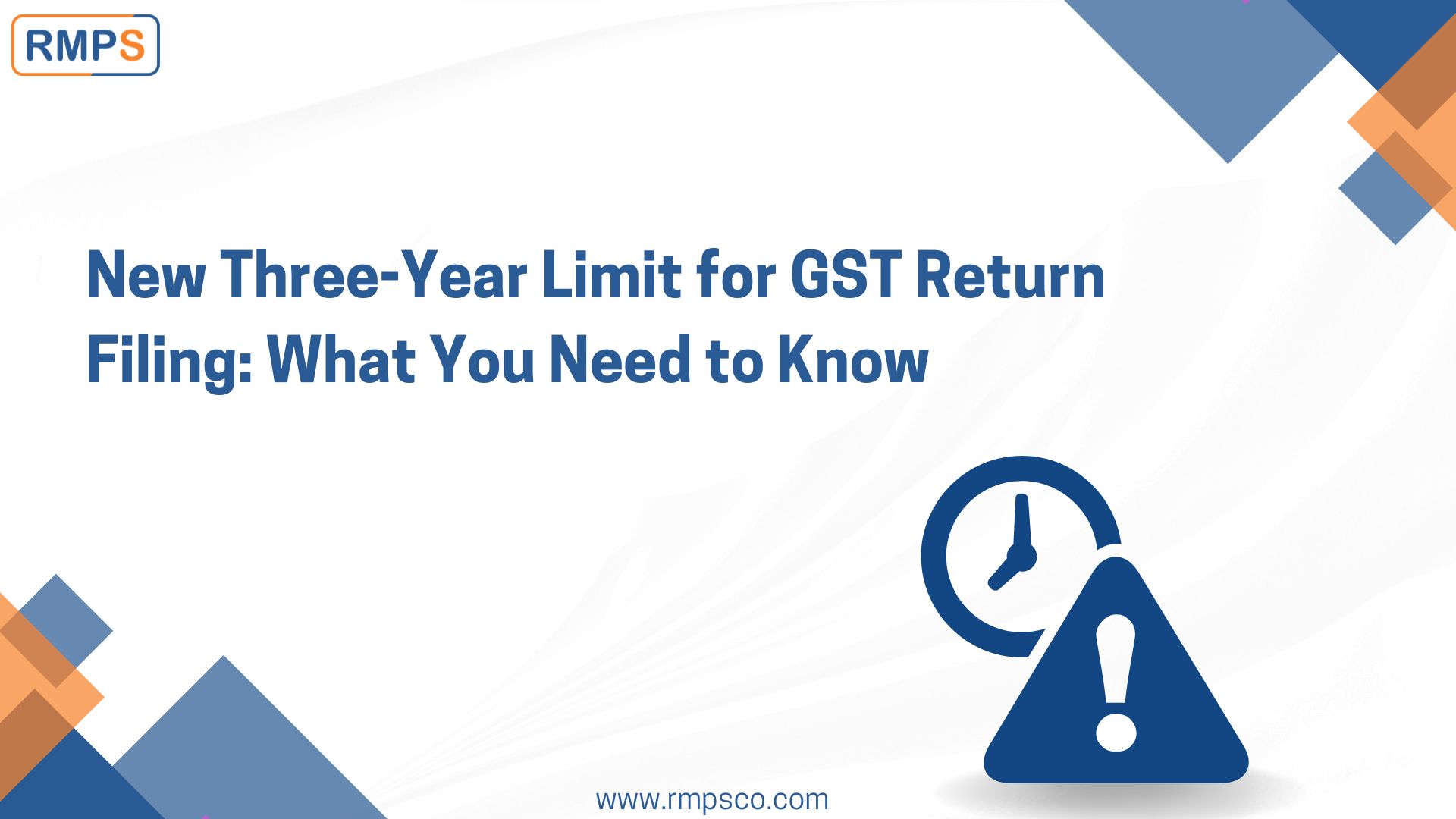
Introduction
The Finance Act, 2023, has introduced a new rule that limits the time taxpayers have to file their GST returns. Starting from October 1, 2023, taxpayers must file their returns within three years from the due date. This blog will explain this change, its impact, and the steps you should take to stay compliant.
What’s New in the Finance Act, 2023?
The Finance Act, 2023, has made GST return deadlines stricter. With this new rule, certain returns can no longer be filed after three years from their due dates. This includes:
- Section 37: Outward Supply (GSTR-1)
- Section 39: Payment of Liability (GSTR-3B)
- Section 44: Annual Return (GSTR-9)
- Section 52: Tax Collected at Source (GSTR-8)
This three-year limit applies to other returns too, such as GSTR-4, GSTR-5, GSTR-5A, GSTR-6, and GSTR-7.
Why Does This Change Matter?
Failing to file your GST returns within this three-year period can create several problems for you and your business. Here’s why meeting this deadline is so important:
1.Avoiding Compliance Penalties
Filing returns after three years is no longer allowed. If you miss the deadline, your business could face penalties, affecting your reputation and finances.
2.Preventing Loss of Input Tax Credit (ITC)
Filing late can mean losing the chance to claim Input Tax Credit. This can reduce your cash flow, making it harder to manage your business finances effectively.
3.Controlling Tax Liabilities
Unfiled returns increase your tax liabilities over time. When tax payments go unpaid, they can grow due to interest and additional penalties.
Steps to Take Now
Since this rule will take full effect on the GST portal in early 2025, you still have time to prepare. Here are some practical steps to ensure you stay compliant:
1.Check and Reconcile Your Records
Make sure your records are complete and accurate. It’s important that all entries match across invoices, records, and returns. This will make filing your returns smoother and faster.
2.File Any Unfiled Returns Immediately
If you have missed filing any past GST returns, take action now to file them. Filing soon will help you avoid potential compliance issues when the new rule is enforced.
3.Stay Informed on GST Updates
Changes can happen quickly, so regularly check for updates on the GST portal. Staying informed will help you avoid last-minute surprises.
Conclusion: Stay Ahead by Filing On Time
With this new three-year deadline, filing GST returns on time is more critical than ever. Prioritizing compliance will protect your business from fines, help you manage cash flow, and keep your records up-to-date. Take action now, and you’ll be ready when the new rule fully takes effect.
LinkedIn Link : RMPS Profile
This article is only a knowledge-sharing initiative and is based on the Relevant Provisions as applicable and as per the information existing at the time of the preparation. In no event, RMPS & Co. or the Author or any other persons be liable for any direct and indirect result from this Article or any inadvertent omission of the provisions, update, etc if any.
Published on: November 13, 2024
